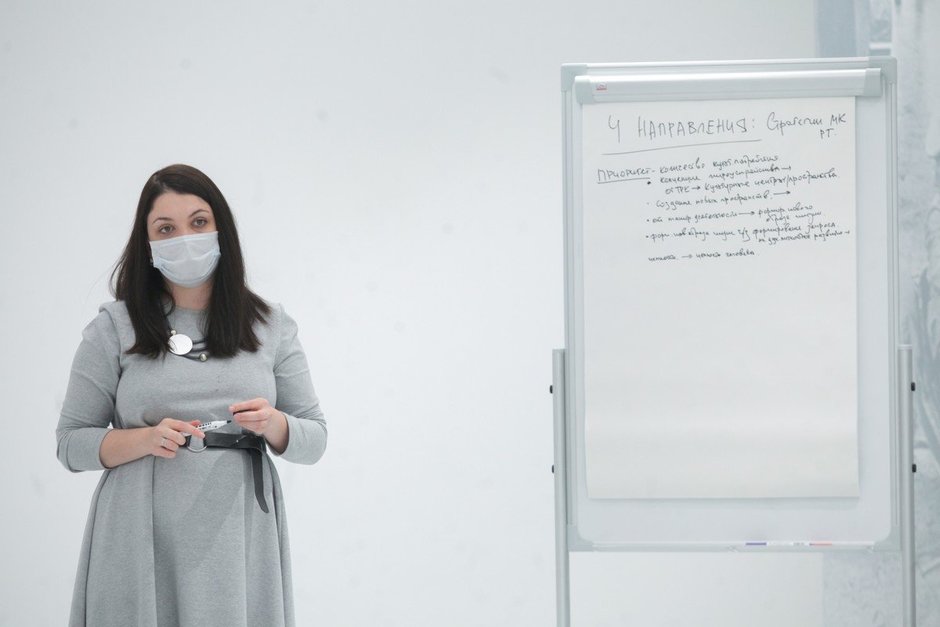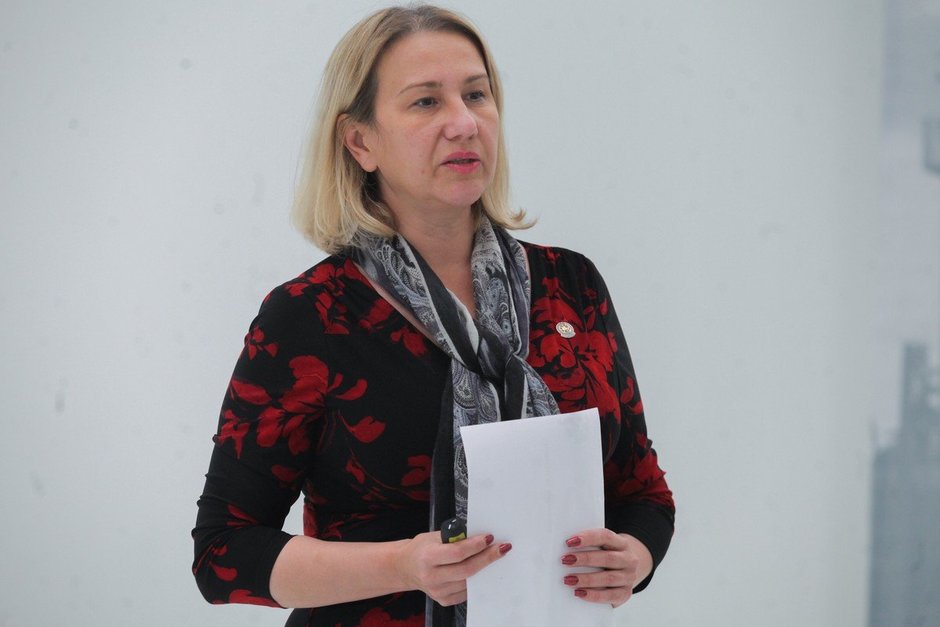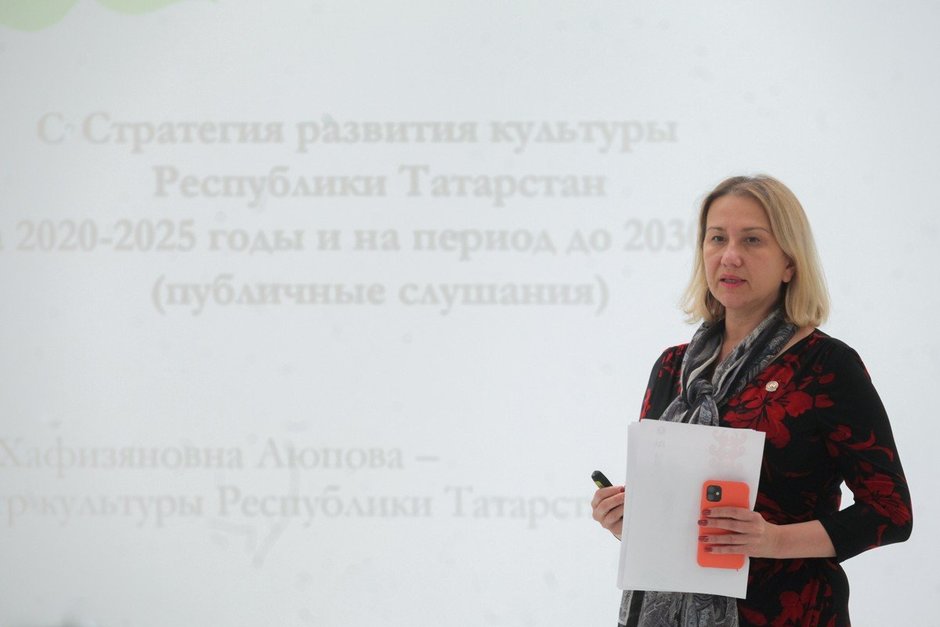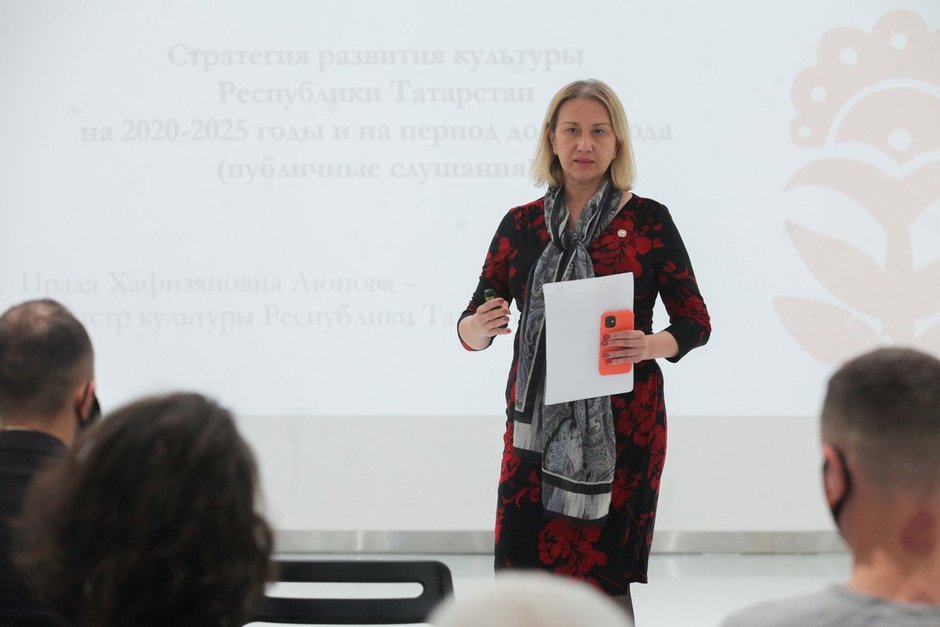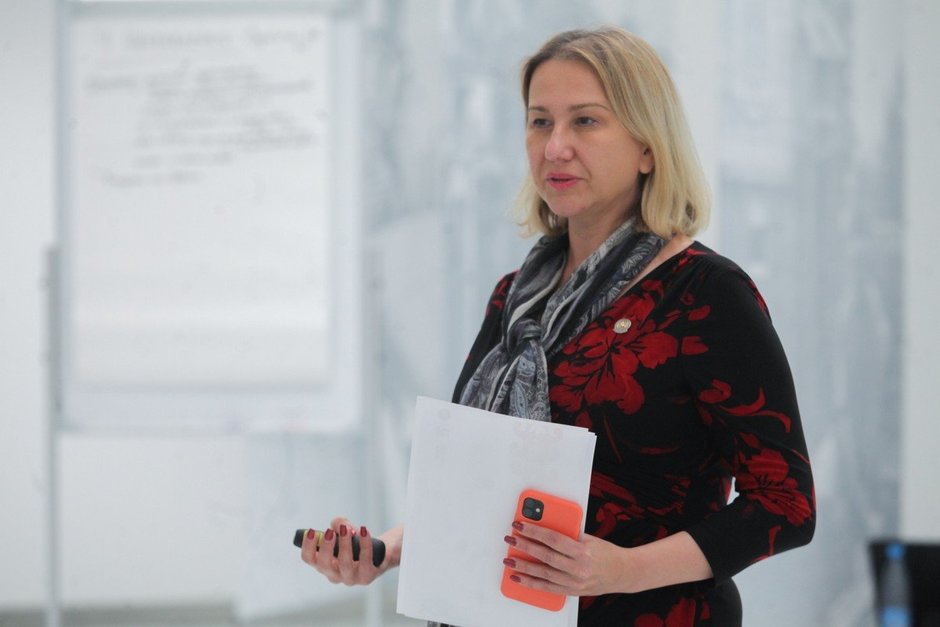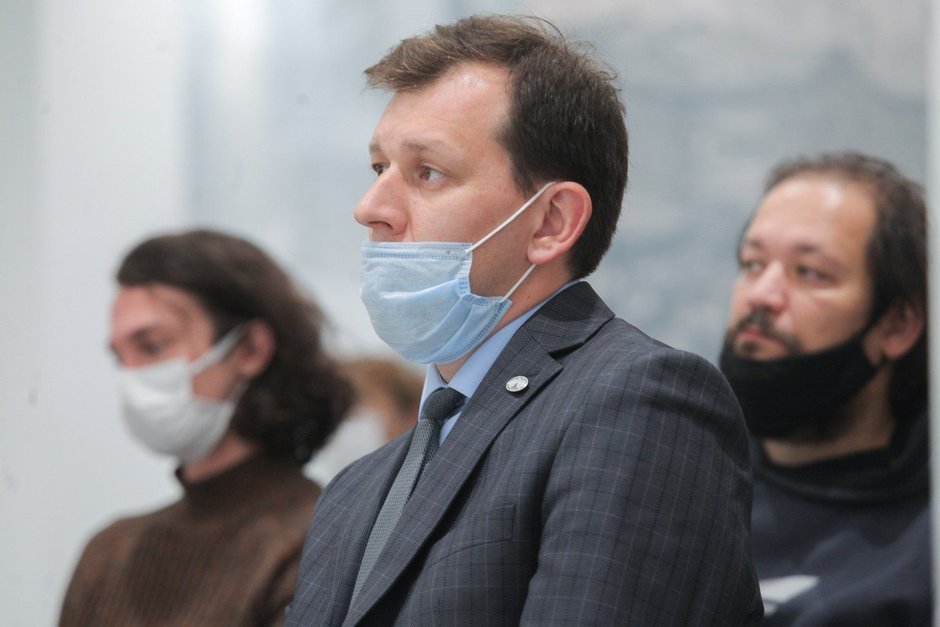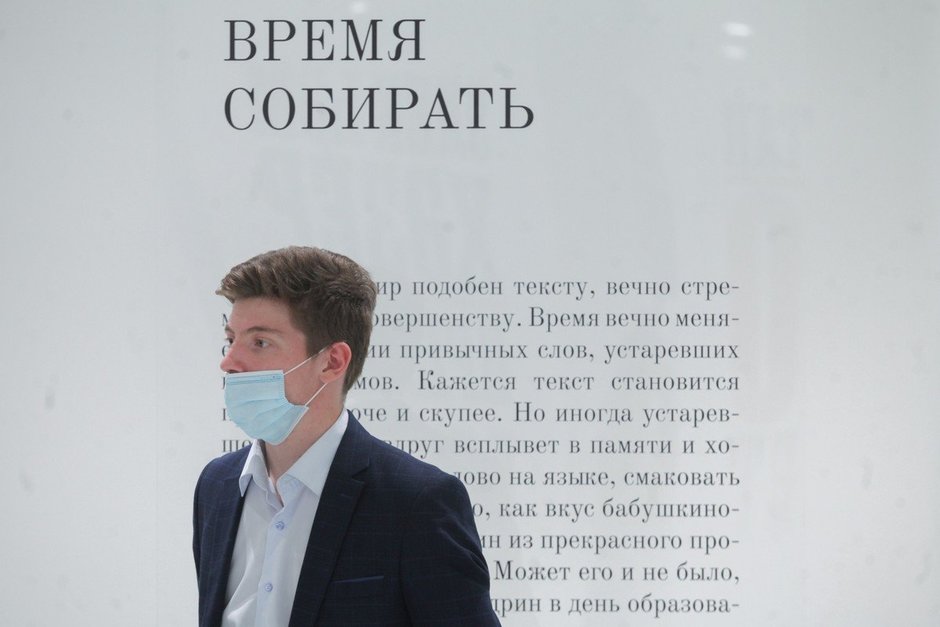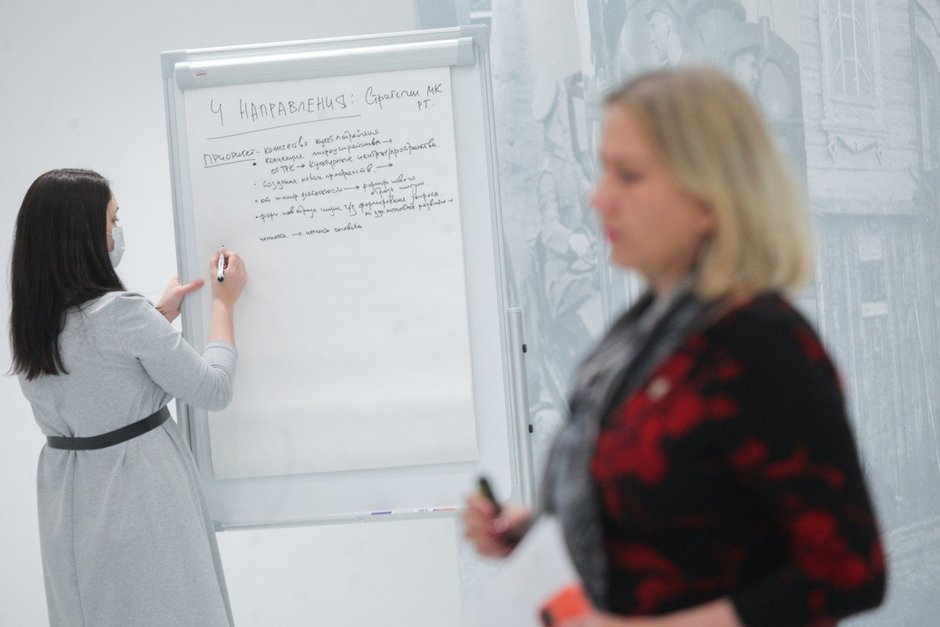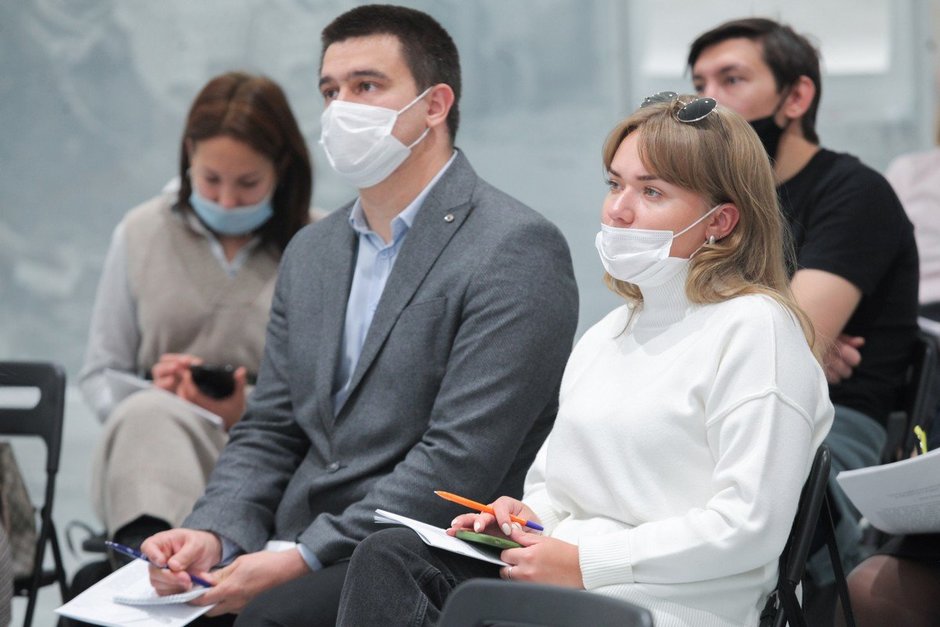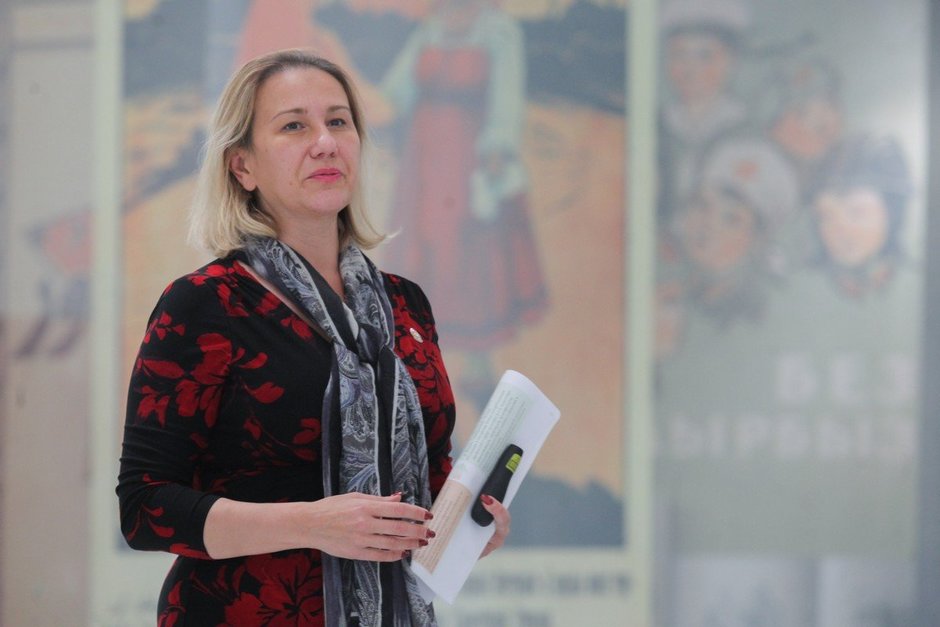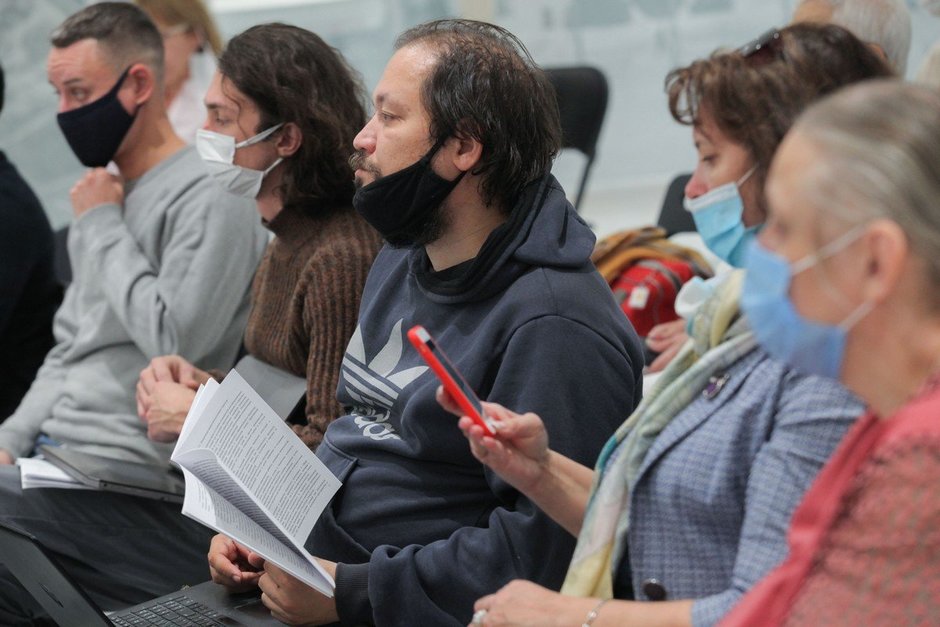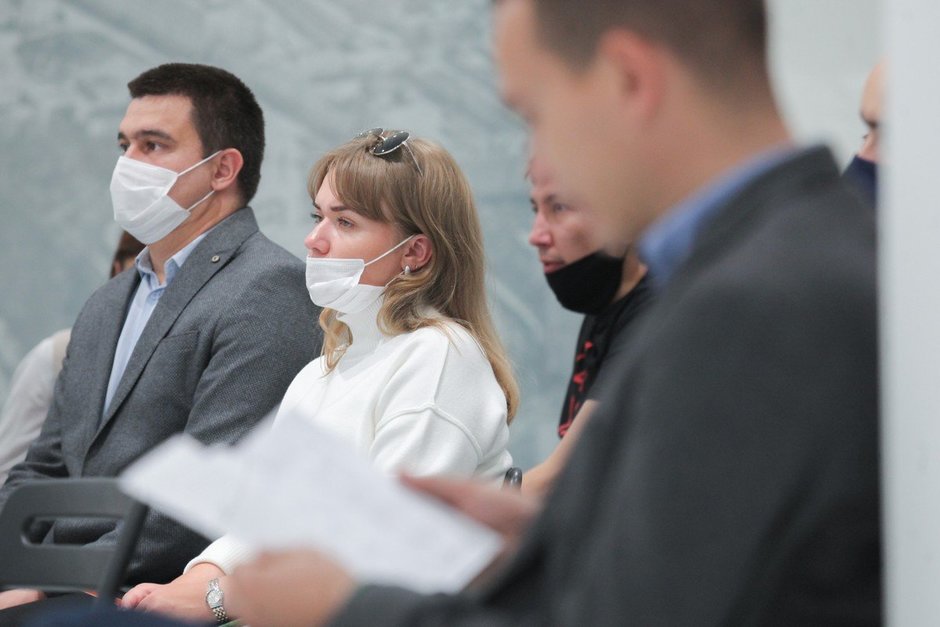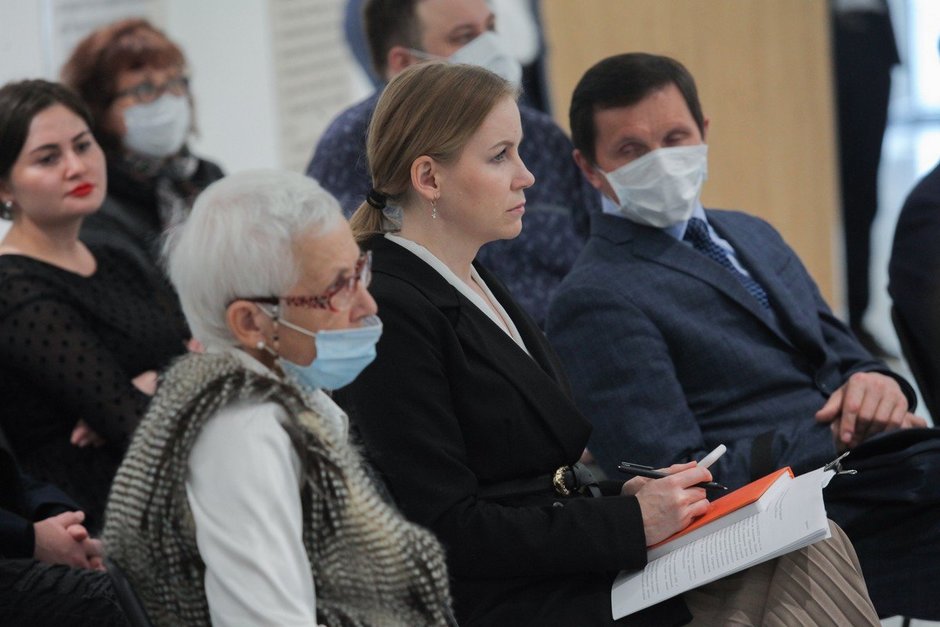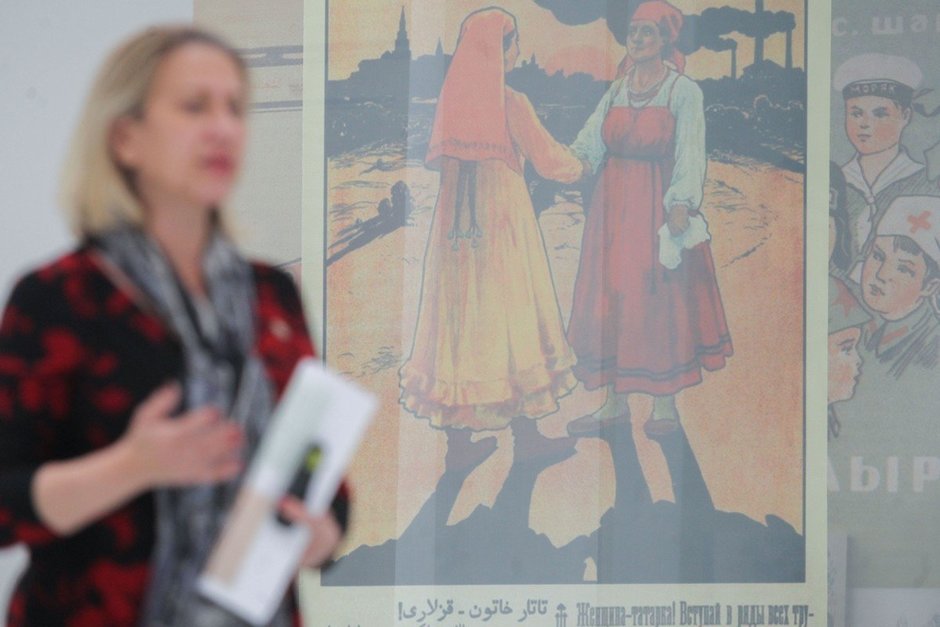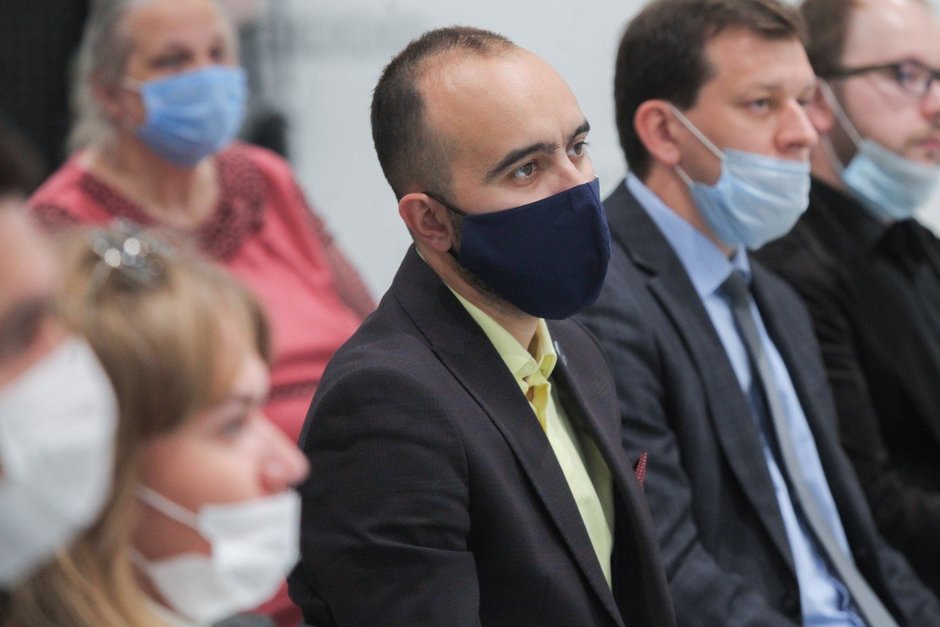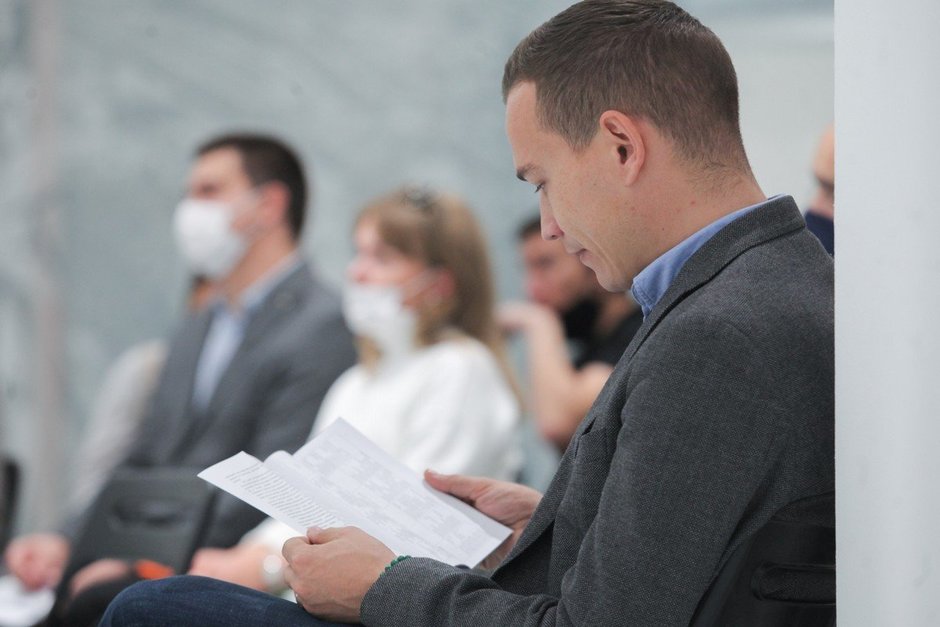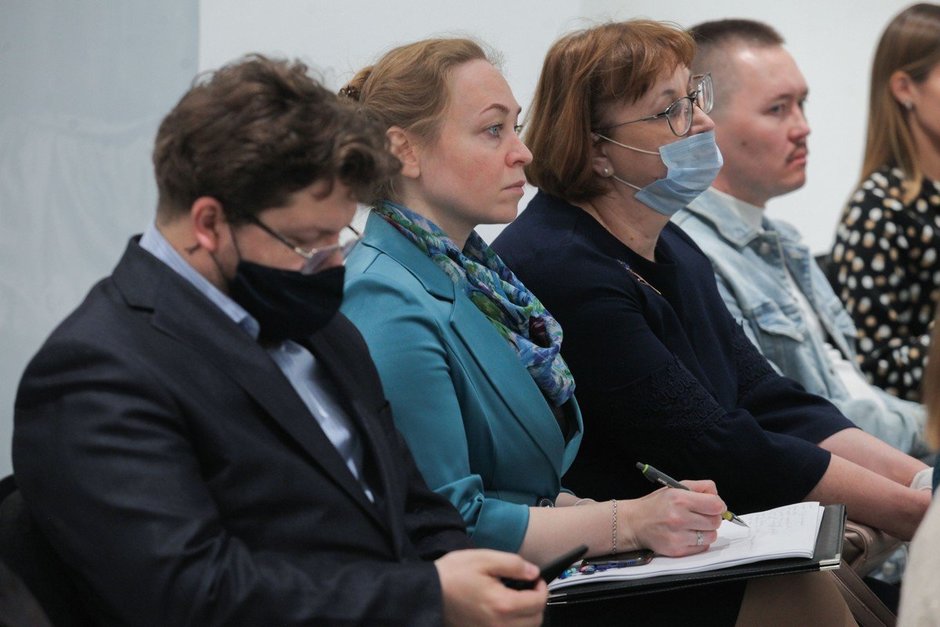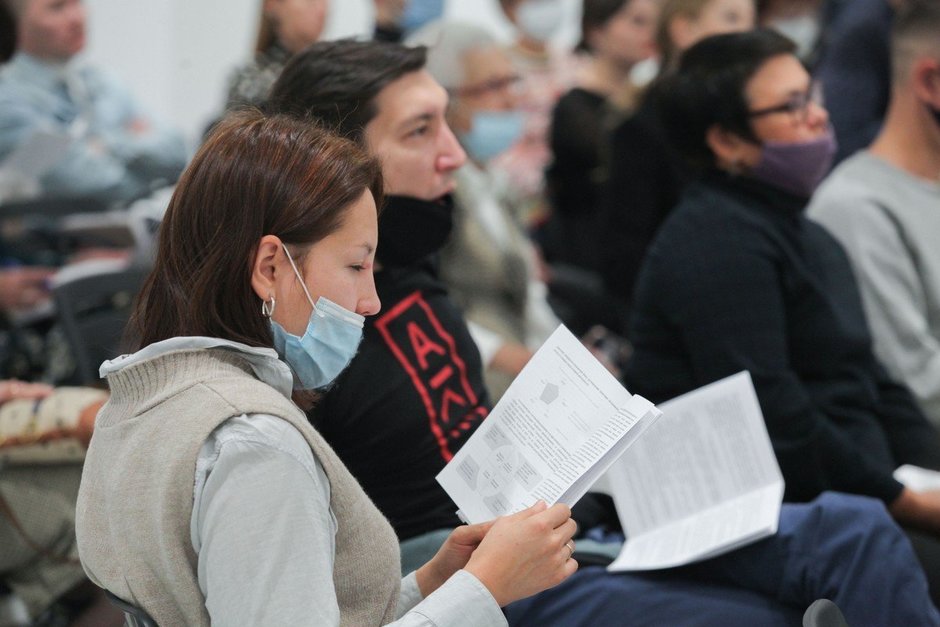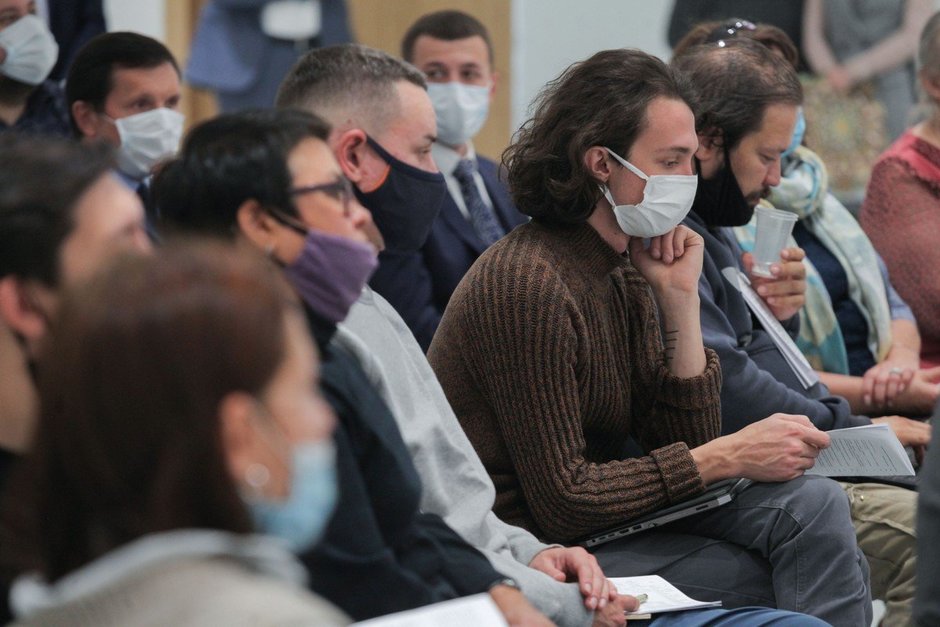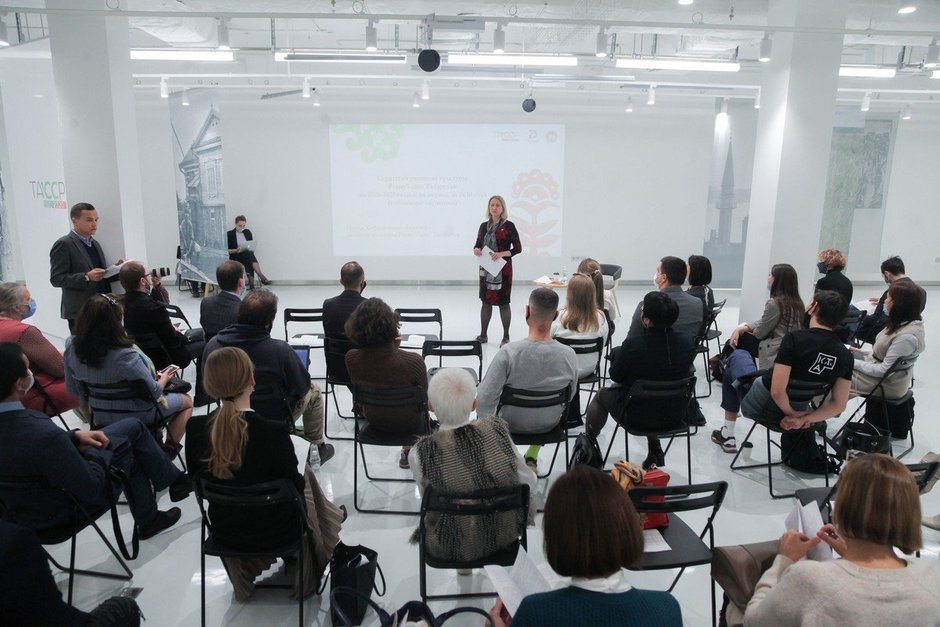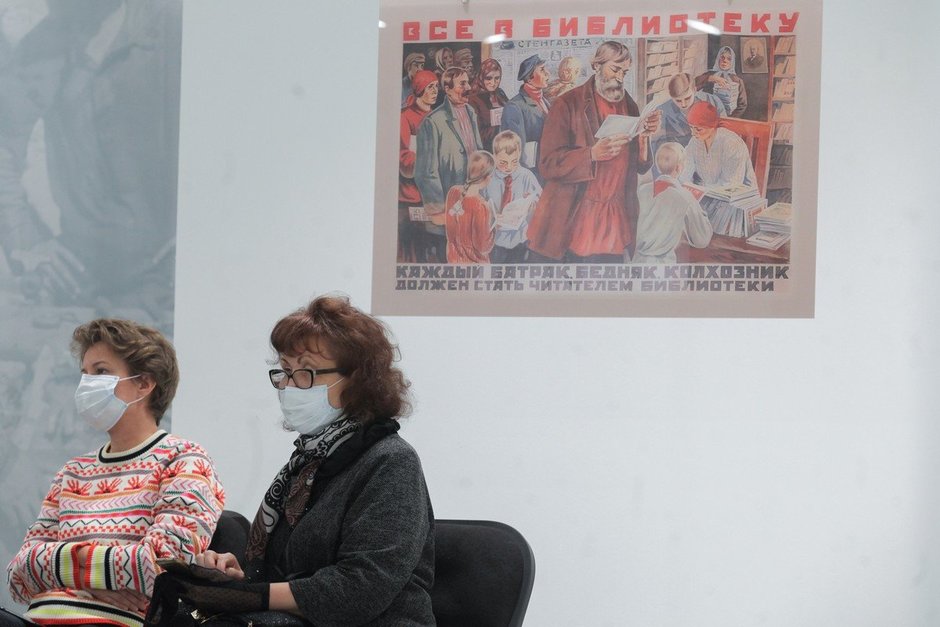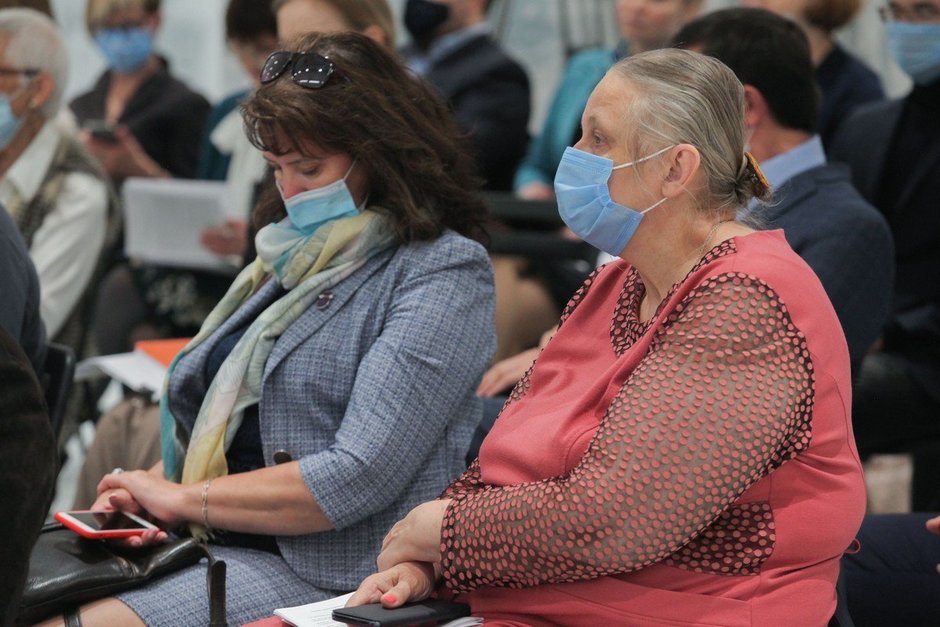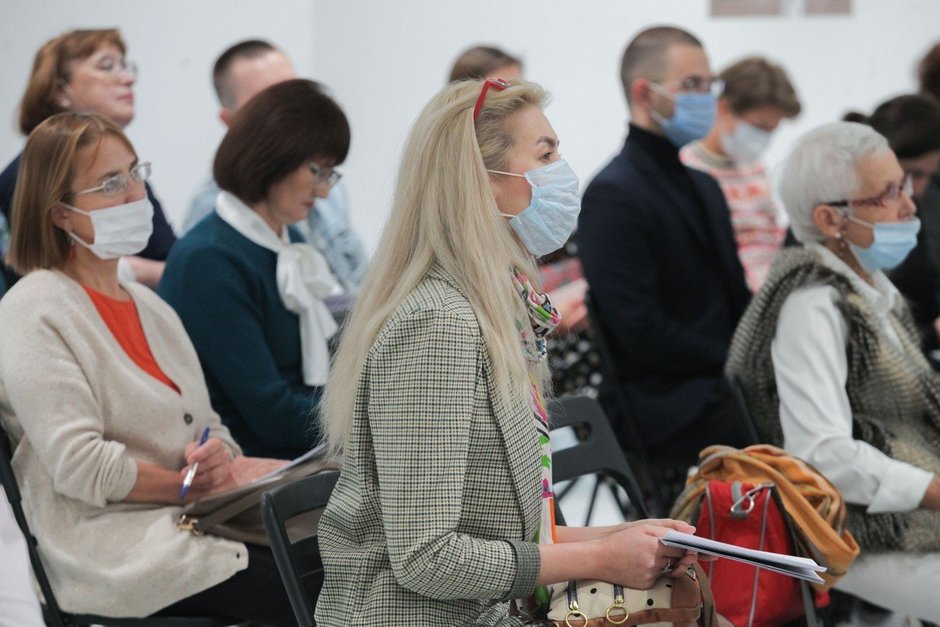Tatar culture’s five Сs: waiting for amendments
How the Culture Development Strategy through 2030 was discussed in the National Library
The final discussion of the project of the Culture Development Strategy through 2030 was discussed in Tatarstan’s National Library. Scientists, journalists, kulturträgers, members of the Tatarstan Culture Ministry’s Public Council examined the document together with the republic’s Minister of Culture Irada Ayupova.
Environment, interaction, communication, education, new jobs
The document was considered at the Council on Culture and Art under the Tatarstan president and the panel of Tatarstan Cabinet of Ministers and at an open session of the Tatarstan Culture Ministry’s Public Council in late September. Moreover, the Culture Development Strategy of the Republic of Tatarstan in 2020-2025 and through 2030 started to be discussed at the final meeting of the ministry in 2018, work on it started in the summer of 2020.
A principle of five Сs is in its foundation:
- creativity (creation of the environment stimulating art);
- communication (the necessity of interacting with communities, working with target audiences more actively);
- cooperation (a principle of uniting resources that is to be dominant in culture);
- capitalisation (it envisages several areas in its movement: capitalisation of resources, capitalisation of culture product, human capitalisation);
- competence (a component that’s closely connected with capitalisation, creation of new jobs in culture).
By the way, key indicators of the development of culture in 2019 are described at the end of the strategy. Accordingly, 361 Sabantuy festivals were held in Russian regions and abroad last year.
The tasks of the Strategy are the following:
- creation of opportunities for self-realisation and development of talents, conditions for educating a harmonically developed and socially responsible personality based on spiritual, moral, family values, patriotism, historical and national and cultural traditions of the Republic of Tatarstan;
- creation of conditions to provide the accessibility of cultural benefits, formation of one cultural space within interaction inside the cultural ecosystem;
- activation of cultural potential, creation of competitiveness and improvement of the quality of services in culture and art;
- formation of effective staff policy;
- digital transformation and integration of projects in informatisation to the activity of cultural establishments and the system of promotion of a cultural product.
What about Tatars?
Unfortunately, the plan for work was presented to the participants only at the meeting, which stretched into almost four hours. Tatarstan Minister of Culture Irada Ayupova shared her thoughts about the project first in the exhibition hall of the library. She particularly paid attention to the fact that many people leaving Kazan choose a new place of residence not only because of high demand but also, for instance, an opportunity of learning from famous teachers. Here she remembered the previous years of the conservatory that attracted people from all Russia.
Ayupova separately talked about marketing in culture and named the topic crucial: “It is a competence that hasn’t been exposed completely. We talk about this at federal level. We can be amazing artists but we can’t realise our potential and be sought-after”. Later she continued: “If you dedicate your life to this area, you must be sure that you will be in demand in this area after graduation”. Here, Ayupova reminded the audience about new jobs appearing in art — one can’t learn them in Kazan.
After that, the audience split in four groups. One discussed the ecosystem of culture, the second — its economy, the third — staff. Identity became another topic of the talk. It was defined in the project of the strategy this way: “conscious or unconscious association of oneself with different social, economic, national, professional, linguistic, political, religious and other groups or other communities”. Then it was followed by “the national identity is one of the components of a person’s identity linked with the perceived belonging to some ethnos or nation”.
It should be noted that Tatars themselves appear in the project only at the end where it reads that the fulfilment of the strategy will allow “providing expansion of inner spiritual, intellectual, cultural and economic potential of the Tatars on the basis of their historical experience, socioeconomic and sociocultural traditions”. By the way, the next theme is the revival of the production of leather national goods on the territory of the republic.
Here are some other noteworthy goals: to increase the share of national films in Russia to 45% by 2030; to expand the share of children who are engaged to participate in art events to 80% of the total number of children by 2030; to create two art incubators in Kazan and Naberezhnye Chelny on the basis of state cultural and art establishments.
What the groups decided
Head of Tamga institute of urban research Marya Leontyeva chaired the groups discussing the ecosystem. The participants meant a huge number of people linked with culture. On the one hand, it is spectators, readers, listeners as well as representatives of the mass media. On the other hand, it is artists, administrators, actors, singers, the ministry itself. Experts and investors are somewhere in the middle. Development of forms of influence of the consumer on artists’ product, connection between education and cultural production, a formal approach to determining the quality of a product, the clarity of the system of decision-making in grant and other systems of support are among priorities. The question of how to define the effectiveness of events caused a heated discussion because there is no clear transparent monitoring in this topic.
Head of Yulbasma publishing house Guzel Khasanova was responsible for economy. She noted that the participants complained about big questions about legislation in culture — here absolutely transparent rules of the game are needed. Moreover, she offered an idea of exchange where the creative cluster from Tatarstan could offer its products outside not only the region but also Russia.
Aygul Davletshina, an independent consultant in culture policy, art manager was responsible for the work of the group on staff:
“Our discussion has been very heated, it was clear that everybody lacked such meetings, everybody has different spheres, different visions, when they meet, something new is born, even answers people have been looking for for long are found.”
Some of the priorities are the attraction (and return) of staff to the republic, creation of a stimulating system; the appearance of expert communities, including forums and clubs that help each other; supervision of the state of staff in the sector and definition of priorities; promotion of national culture; attraction of local undergraduates as volunteers (a way of career guidance); interaction with children; interaction of the ministries of culture and education; realisation of staff’s potential (particularly via sociocultural programmes); mentorship; upgrade of qualification, retraining; “injections” of competences for professional clubs, invitation of experts; intersectoral interaction (marketing — economy — culture); clubs where one can turn to for advice.
Let’s say that in promotion of national culture it was said it was necessary to think about support for specialists in Tatar craftsmanship so that they will go outside institutions and offer training as workshops in public spaces. As for mentorship, there was an idea of creating a roster thanks to which any person who, for instance, played the violin in childhood and now decided to brush up his skills could find a teacher. Historian, candidate for cultural studies, head of the memorial laboratory at Tamga institute of urban research worked with the identity:
“The main message is that it is important to create a territorial identity. It is little to show it, an institution that will keep transmitting it is needed because not only we, residents of Tatarstan, should understand who we are. As there is a rotation of the population and a lot of youth come to Tatarstan, they should also understand what is important for our territory.”
What about problems? There is no link between the Ministry of Education and Ministry of Culture, there is no communication between the agencies, there is no common site, no identity database. It will probably be an institution or identity forum where researchers could discuss hot-button issues.
Development of the local identity in mother tongues, work with the youth from kindergarten, creation of a chain of children’s theatres and studios are the main priorities. It was said that a lot of cultural establishment working with the identity could be manifested in the urban space more. There was offered to hold festivals in settlements based on the interest in ethnography. So Kazan could become a hub for other regions who would discuss their identity here thanks to its developed infrastructure. A problem of access to archives was also tabled, the archives don’t reach the consumer. We as researchers don’t get access to them.
The participants in the meeting also said that local culture centres could be centres where citizens could discuss topical problems once in a quarter, a kind of project pitching in regions. Another problem is that there is no united museum development strategy. The Gallery of Modern Art, the Museum of Fine Arts were upgraded. But the system of the National Museum requires close attention.
It is assumed the recommendations and amendments that were voiced will also appear in the project of the Strategy the Cabinet of Minister is due to adopt this month already.
